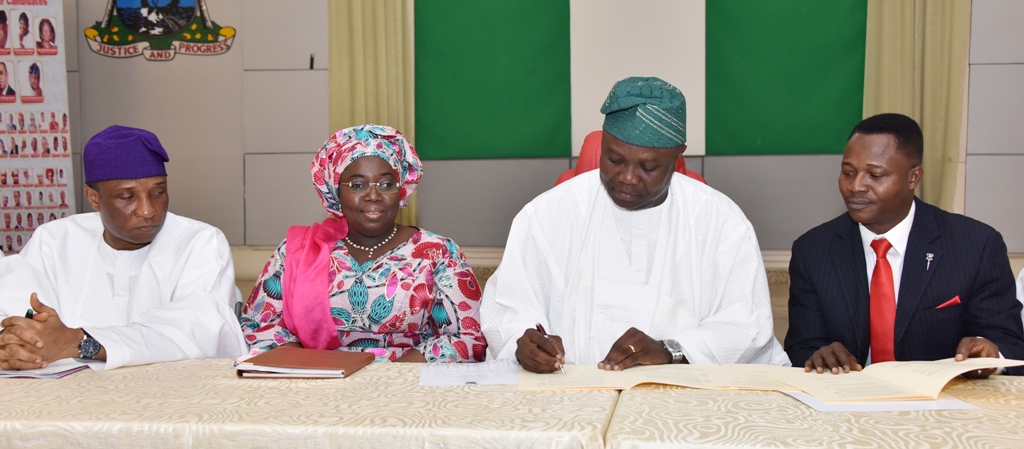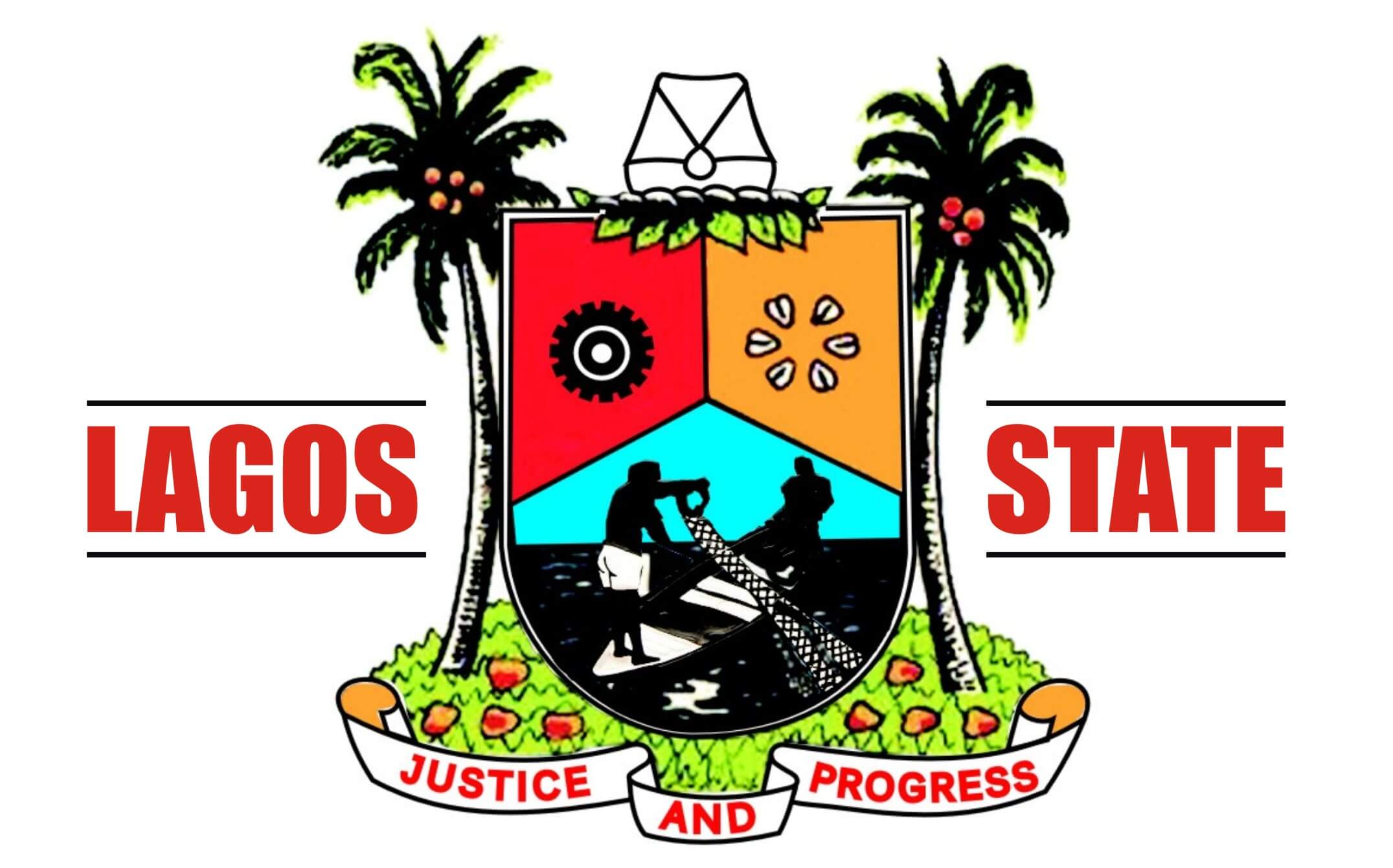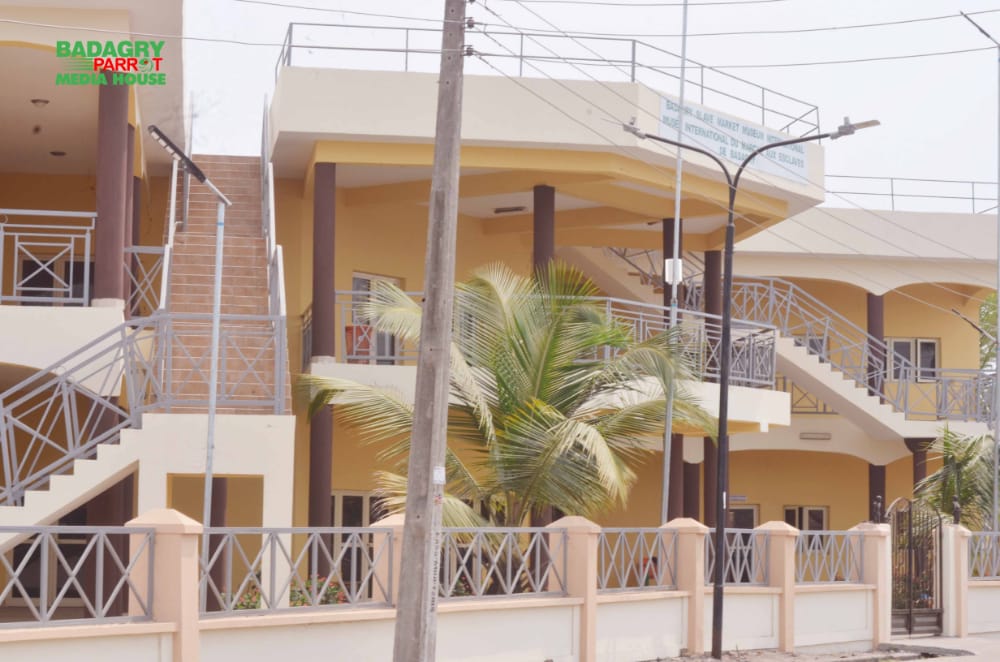…says it’s article of faith
By Lanre Adesanya
Fulfilling the promise to hand the 2016 appropriation to Lagosians as their New year gift, Lagos State Governor, Mr. Akinwunmi Ambode made good his promise by signing N662.588bn Y2016 Appropriation Law with a promise that the budget would be faithfully implemented in line with the determination of his administration to make Lagos work for all, irrespective of age, gender, tribe or status.
The Governor who spoke at a brief but impressive ceremony held at the Banquet Hall, Lagos House, said the 2016 budget was the article of faith of his administration with Lagosians and it was in line with delivering on the promises made to the people.
Noting that: “The Y2016 budget of N662.588bn will enable our government focus on the present challenges of security, traffic gridlock resolution including physical and social infrastructural developments which have thrown up new challenges quite different from our past experience”.
The Governor thanked the House of Assembly for speedily ensuring the passage of the bill which he presented to the House on December 17 and passed on December 31, saying it was no mean feat considering the long hours spent and meticulous scrutiny provided by the House Committee on Appropriation.
While alluding to the fact that the falling crude oil prices has sprung up economic challenges as well as affected the Federal Allocations, he said the State’s budget will be driven by Internally Generated Revenue (IGR).
He, however, urged tax payers to fulfill their civic obligations, promising that no stone will be left unturned in delivering value for every Kobo spent.
“I will commend this Budget to all Lagosians and enjoin them to continue collaborating with us in building the Lagos of our dreams”, he said.
Giving a breakdown of the 2016 budget, tagged “The Peoples Budget”, the Commissioner for Economic Planning and Budget, Mr. Akinyemi Ashade said it will go a long way to promote massive investments in Security, Transport/Traffic management, Physical and Social Infrastructural development in addition to enhancing job creation/opportunities.
He said the 2016 budget is 26 percent higher than the budgets of 2014 and 2015 respectively, with an estimated total revenue of N542.873bn with the balance of N119.714bn expected to be funded through a combination of internal and external loans included World Bank DPO 3 loan which could not be accessed in 2015.
He said the Lagos Internal Revenue Service is expected to generate N300billion equivalent to 78 percent of the total IGR, however adding that while the state government does not intend to introduce new taxes, efforts will be made towards bringing more citizens into the tax net especially the informal sector as well as through the adoption of an automated process to block leakages.
According to Ashade, the Y2016 budget was carefully prepared taking into consideration recent developments in the Global and National Economy Spheres, adding that although the State Government adopted the National Crude Oil projection of $38 per barrel, the budget will be largely driven by IGR made up of taxes, rates and levies.
He said the underlying principles of the budget include planned and systematic maintenance of existing/new infrastructural facilities, completion of ongoing projects, payment of outstanding liabilities, sustenance of the goals of job creation, poverty eradication and wealth creation in addition to efficient service delivery to Lagosians.
Giving a breakdown of the expenditure plan, Ashade said N89billion will be spent on construction, rehabilitation and maintenance of roads and public buildings, while N48.9billion will be expended on various Transportation initiatives including the completion of the Blue Rail Line and expansion of BRT Corridors (Mile 12-Ojota).
The Commissioner also said that N86billion will be spent on the education sector, which according to him, will cover the state government flagship programmes including A-Meal-a-Day initiative to be partly sponsored by the Federal Government, Ibile tablets for Secondary Schools as well as the development of the E-Curriculum initiative.
He gave the expenditure breakdown of other sectors to include, Health (N46.9bn) Agriculture and Food Security (N2bn), Tourism (N2.2bn), Commerce and Industry (N6.2bn), Environment (N27bn), Pensions (N6.5bn), Science and Technology (N9.6bn), Water (N17.6bn), Housing (N25.3bn), Sports Development (N2.3billion), among others.

 Latest3 days ago
Latest3 days ago
 Trends4 days ago
Trends4 days ago
 Business6 days ago
Business6 days ago
 Football6 days ago
Football6 days ago
 Featured6 days ago
Featured6 days ago
 Health5 days ago
Health5 days ago
 Football5 days ago
Football5 days ago
 Business6 days ago
Business6 days ago








